
The Top Ten Reasons To Buy All-Terrain Tires
All-terrains tires are not as flashy or sexy as their mud-terrain brethren. They don’t have the super-aggressive tread patterns with large voids and big lugs that so many desire. But how a tire looks is only one of the many factors that need consideration before making a purchase. Actually, looks should be fairly low on the list as things like road noise, tread life, and performance in a variety of terrains are more critical. Remember, tires are a long-term relationship as they are on your vehicle for a while. Entering a long-term relationship with someone based on looks alone usually ends in disaster. The same is true for tires.
That is not to say mud-terrain tires don’t have their place. For those that often encounter mud or play on rocky, technical trails they are a great choice. But for the vast majority of us, an all-terrain tire might be better. It may seem blasphemous to some, but aggressive tires aren’t always the best pick.
Buying a new set of tires is not cheap. Depending upon their size, four tires are going to set you back at least $1,000 or more. Getting the right ones is critical to avoid a costly mistake. So how do you know if an all-terrain tire is right for you? We came up with a list of 10 reasons why an all-terrain tire might be better for you. Read on to find out why.
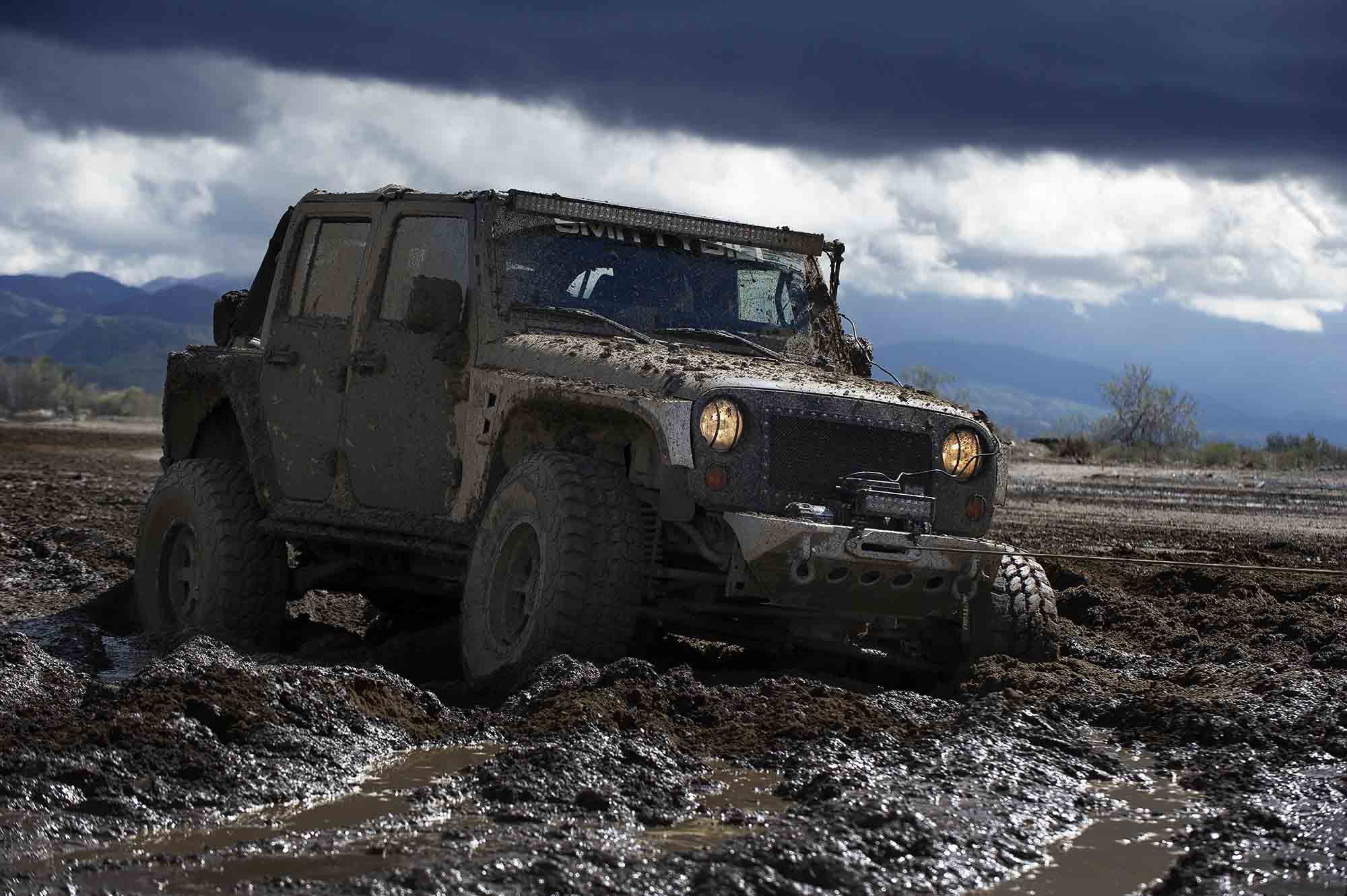
Mud-terrain tires work great in mud and on rocky, technical trails. But if you can’t remember the last time you got muddy or took on the rocks, an all-terrain tire might work better for you.
You Don’t Encounter Mud
If you don’t encounter mud regularly, you probably don’t need a mud-terrain tire. This might seem pretty obvious, but we see lots of people running a mud-terrain tire solely for looks. It happens a lot, and we have been guilty of it too. We ran mud-terrain tires for years, even though we live in the arid West where it rarely rains. And, we don’t like mud or having to wash it off of our vehicles. If you can’t remember the last time you were in mud, an all-terrain tire would be a better choice.
There is also the general misconception that all-terrain tires don’t work at all in mud. Do they perform as well as an mud-terrain in mud? They absolutely do not, but most can handle some occasional mud. It does depend upon the type of mud, though. Very sticky clay will easily clog all-terrain tires and make them useless. But, all-terrains can occasionally handle other types of less sticky mud. They wouldn’t be our first choice for regular use in mud, but they can handle some.
You Don’t Drive On Rocky, Technical Trails
Mud terrain tires don’t just excel in mud. They are great for technical trails with lots of rocks and ledges. The open voids and bigger lugs of mud-terrain tires act like the fingers of a rock climber in this terrain. They grip and help pull your vehicle up ledges and over rocks. Many mud-terrain tires, like the BFGoodrich Mud-Terrain KM3, also extend the tread down the sidewall to add some extra puncture protection. More all-terrain tires are doing this as well, though. All of that is great, but if you never are in that type of terrain, then you don’t need a mud-terrain tire.
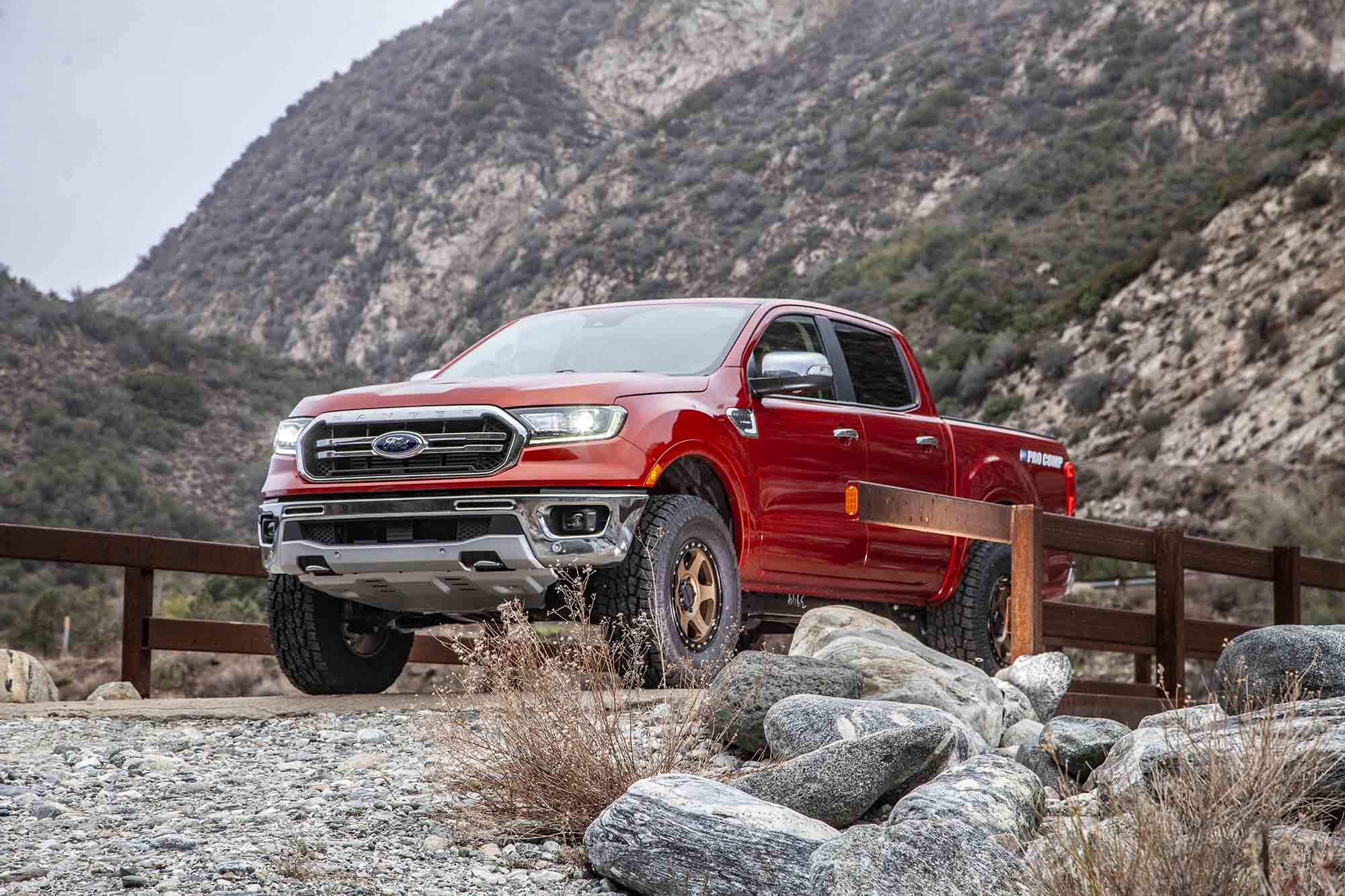
Modern vehicles are comfortable, capable, and extremely quiet on the inside compared to vehicles from a couple of decades ago. If you want to keep that quiet interior, an all-terrain tire is a better choice.
You Put A Lot Of Miles On Your Vehicle
One of the most significant advantages of an all-terrain tire is that they last a lot longer than mud-terrains. The difference in tread life can be substantial. All-terrain tires, like the Pro Comp Sport A/T, also come with tread life warranties to ensure that they last a long time. You have to read the fine print on these warranties to make sure you don’t void them. And, usually all-terrain tires with warranties use a harder compound. This means you might give up some off-road performance, but the tread will last longer.
So how much longer do all-terrain tires last? Well, that depends upon lots of factors like how much your vehicle weighs, do you keep it aligned, and how you drive. Generally, we are happy if we get 30,000 miles out of mud-terrain tires (again, this is pretty general). With a set of all-terrain tires it is not uncommon to get 50,000 miles out of them or more. To see how to take care of your tires and maximize tread life, check out our story here.
You Drive A Modern Vehicle
We love a cool, vintage trail rig. Early Broncos, Land Cruisers, and flat fenders have more style than just about anything. Old school is always cool, but there is something to be said for a modern vehicle. They are super comfortable, capable, have air conditioning, power everything, and tons of tech. Modern vehicles are also extremely quiet on the inside. The days of vehicles with tons of rattles and wind noise are long gone.
Another big advantage all-terrain tires have over their muddier relatives is that they are much quieter. Their tighter tread blocks and smaller lugs produce a lot less noise on the road. The difference in sound might not be as noticeable in an older vehicle. But throw a set of mud-terrains on a modern vehicle, and you will definitely hear them. All-terrains will be a better choice. To figure out how to select right all-terrain tire for you, check out our story here.
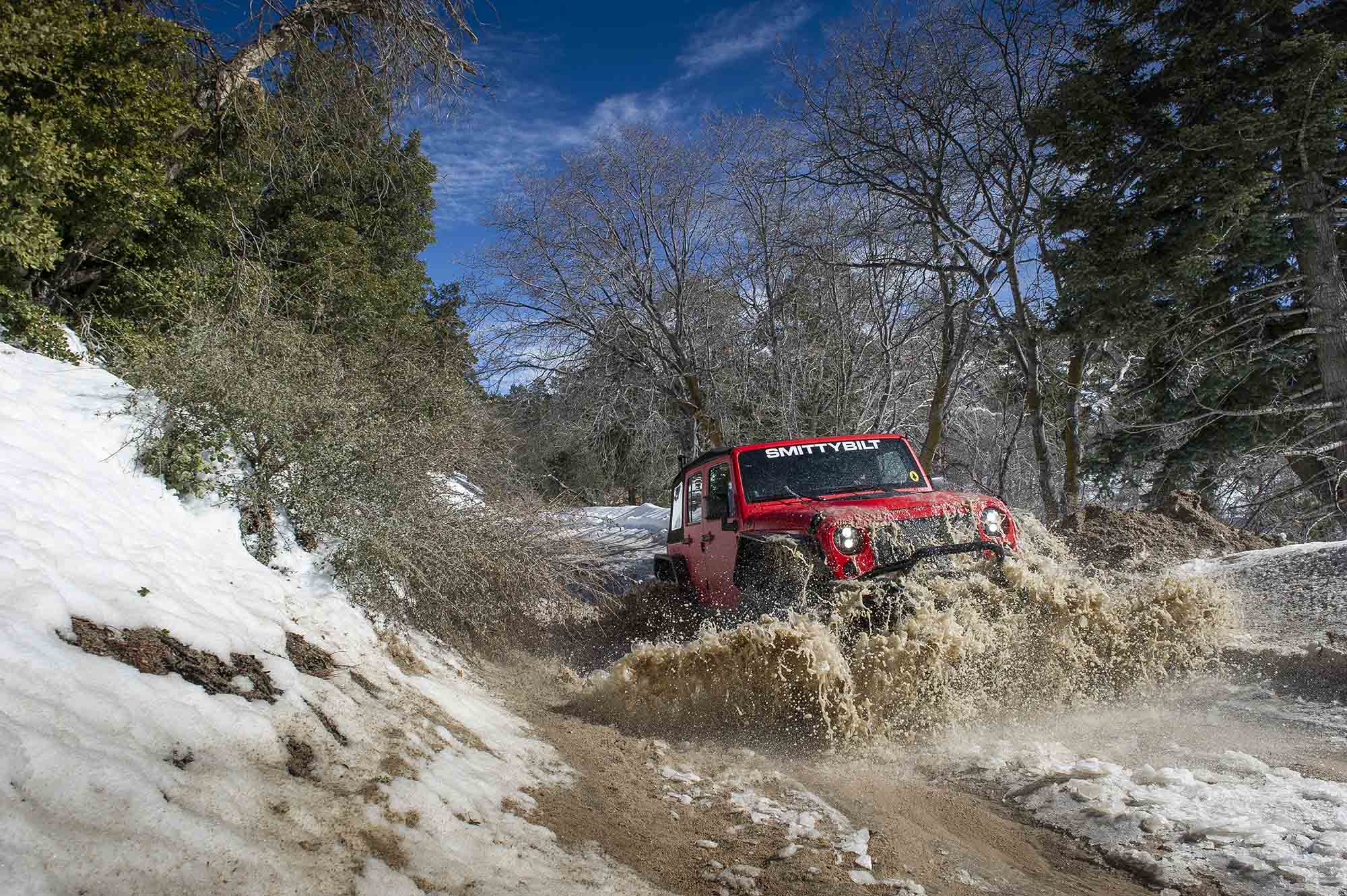
There is the general misconception that mud-terrain tires work better in snow. This is only true on snowy trails with mud under the snow. Most of us encounter snow and ice on paved roads and here an all-terrain tire will perform better.
You Live Where It Snows
Another misconception about mud-terrain tires is that they work better in snow. A lot of this comes from the M+S (for mud and snow) designation stamped on the side of them. But this designation is something that any tire manufacturer can put on their tires. There is no testing or requirements to pass. In other words, it doesn’t mean much.
Mud-terrain tires do work better in snow with mud below it. The superior self-cleaning properties of a mud tire can keep the tread clean and the tire clawing its way forward. Most of us encounter snow and ice on the road, though, and this is where all-terrain tires work better. Their smaller tread blocks can conform to snow on pavement better. And, those tread blocks are also usually siped, giving them even more biting edges. Some all-terrain tires use rubber compounds in the tread that keep it flexible at low temperatures too. All of it helps all-terrain tires to provide a much better grip in snow on the pavement. Only all-terrain tires come with the Three Peak Mountain Snowflake rating. No mud-terrain tires do.
You Like Getting Better Gas Mileage
Most people don’t pay attention to the weight of a tire, but it does matter. Every time you accelerate, your engine has to move all of that rotating mass. The heavier a tire is, the more fuel is burned turning it. With their bigger lugs and aggressive treads, mud-terrain tires are heavier than all-terrains. This is true even of tires of the same size. Bigger lugs and wider voids also create more rolling resistance eating up even more fuel.
All-terrain tires both weigh less and have less rolling resistance than mud-terrains. Since your rig is using less power to turn them, you get better gas mileage. Now this increase in gas mileage might not be huge. But if you rack up a lot of miles, any increase in mpg helps make less of a dent in your wallet at the pump.
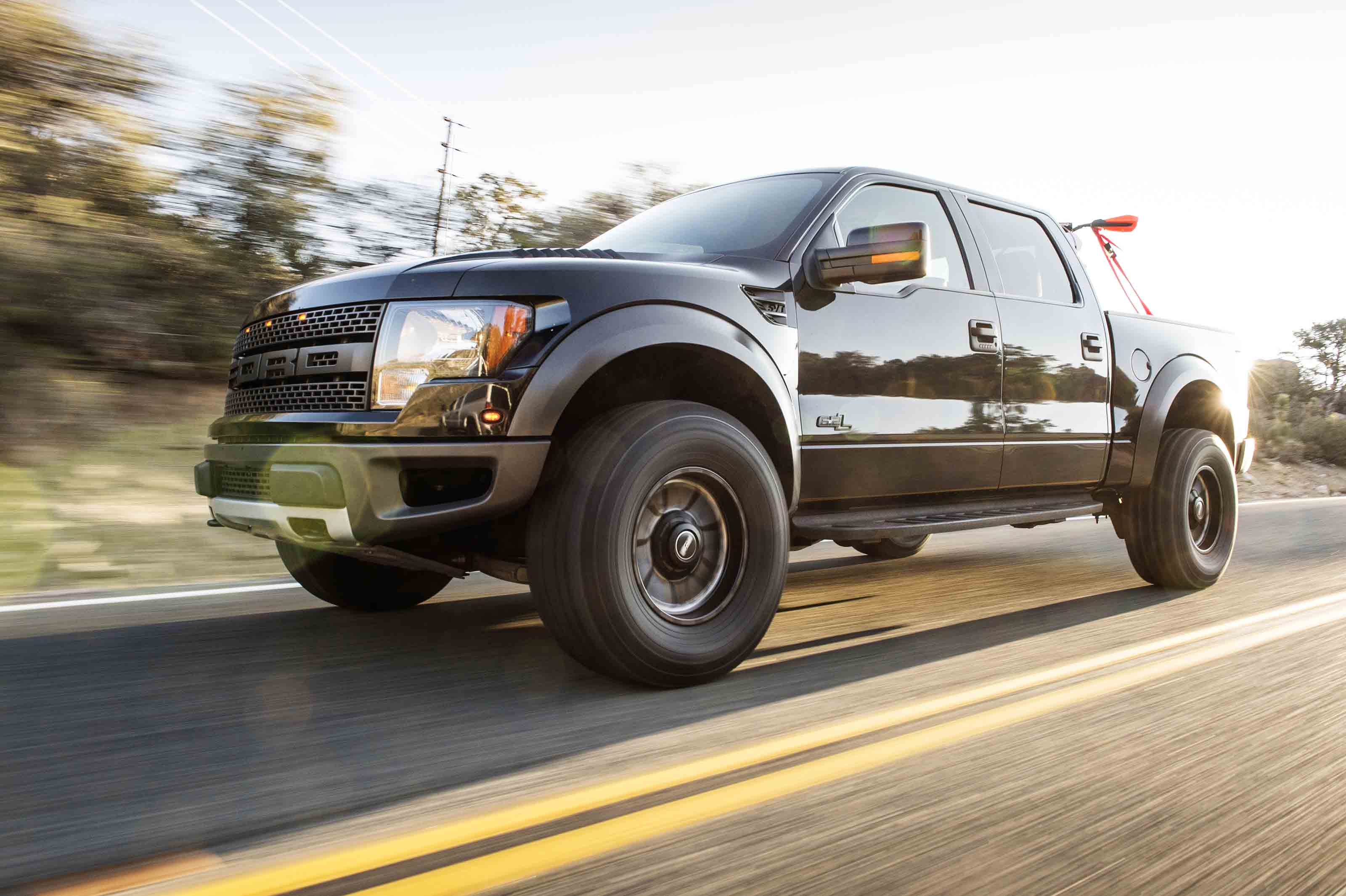
If your rig is a daily driver that you put a lot of miles on, all-terrain tires are definitely the way to go. They will produce less road noise, last longer, handle better, and you may even get better gas mileage.
You Want Better Handling
If we are realistic most trucks, SUVs, and Jeeps aren’t known for their stellar handling. You aren’t going to beat a Porsche up a canyon road behind the wheel of a Jeep on 37s. Sure, the handling threshold of the average 4×4 might be pretty low. But, put on an aggressive set of mud-terrains and that handling limit gets even lower.
The reason for this decrease in handling is pretty simple: less tread on the pavement means less grip. All-terrain tires, like the Toyo Open Country A/T II, put more rubber on the road for better handling. That might not mean much to flatlanders, but if you regularly drive through the mountains, it can make a difference.
You Daily Drive Your Vehicle
If your vehicle is a second vehicle or a dedicated trail rig, put as an aggressive tire on it as you want. But if you drive your vehicle every day, mud-terrain tires eventually get old. Trust us, we have a set on our current daily driver and they are annoying. Eventually, you get tired of the extra road noise they produce. Driving around town it is not a big deal. But, get out on the freeway or the highway and that road noise gets old fast. Long road trips are the worst. The bigger lugs and wider voids of a mud-terrain tire also produce a bit more vibration as well. It might not seem like a big deal at first, but you will be tired of it by Day 473 of living with your mud-terrains.
You Don’t Need Giant Tires
The trend with tires is bigger is better. Nowadays, it seems 37s are the new 35s and 40s the new 37s. But the biggest all-terrain tires you can get are 37s. After that, only mud-terrains are available. If you are taking on giant rocks and bottomless mud, you really need big tires. But, for the rest of us that daily drive our rigs, there is a point of diminishing returns on tire size. If you are running an all-terrain tire, you really don’t need anything over a 37.
You Want A Versatile Tire
When it comes down to it, mud-terrain tires are specialists. They work better than any other tires in certain terrains (mud and rocks) and marginally everywhere else. While all-terrain tires might not work as well in rocks or mud, they do work better in a wider variety of terrains. Most of us like to think of ourselves as rugged off-roaders, but we spend the majority of our time on pavement. All-terrain tires work better on the road too. It all comes down to what you are looking for, but an all-terrain tire is a more well-rounded and versatile tire for the vast majority of us.




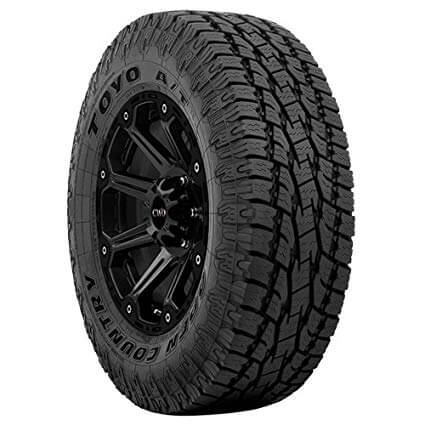
2